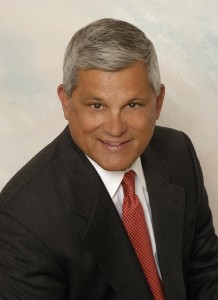By Glenn Swain
Last week the U.S. Department of Transportation’s National Highway Traffic Safety Administration (NHTSA) proposed a new federal motor vehicle safety standard to require electronic stability control (ESC) systems on motorcoaches, other large buses and large commercial trucks

for the first time. Agency research shows the technology could prevent up to 56 percent of rollover crashes each year—the deadliest among all crash types—and another 14 percent of loss-of-control crashes.
An extensive NHTSA research program to determine how available stability control technologies affect crashes involving commercial vehicles found ESC systems to be the most effective tool for reducing the propensity for heavy vehicles to rollover or lose control. With sensors that monitor vehicle movement and steering, ESC can help mitigate rollover incidents by using automatic computer-controlled braking, and also aid the driver in addressing severe understeer or oversteer conditions that can lead to loss of control. NHTSA estimates that a standard requiring ESC on the nation’s large trucks and large buses would prevent up to 2,329 crashes, eliminate an estimated 649 to 858 injuries, and prevent between 49 and 60 fatalities a year.
Although it is still in the proposal stage and far from becoming law, any changes would affect tour and motorcoach operators.
“Tour operators are in favor of anything that will increase safety on the coaches,” John Stachnik, president of Mayflower Tours, told BUSRide

on Tuesday. “Yes, it does take a while to get used to these changes, but changes must be made. A great example is handicap accessibility for special needs passengers. A few seats disappeared from the coaches so load factor considerations came into play, yet it has worked out well for all concerned. A stricter interpretation of drivers’ working hours has led to safer travel. It may cost the tour operator – and ultimately the traveler – extra money but it is well worth the added expense. We want safer travel, not cheaper travel.”
“Soon there will be so many gadgets onboard coaches that there won’t be any room for the passengers,” said Michael Kraft, managing director of KrafTours in Tulsa, OK. “Instead of expecting the drivers to drive safely and be taught to drive properly, we’re adding more and more computer-controlled widgets on the buses. It’s driving the cost of coaches to the point where we don’t buy new coaches anymore. The market, at least where we are, won’t pay what new coaches ought to earn. The customers want new coaches; they don’t want to pay a rate that makes new coaches a viable business option for operators like us.”
In a written statement Prevost Director of Marketing Michael Power said Prevost welcomes the proposed rule regarding Electronic Stability.
“Prevost provides Electronic Stability as a standard feature (Prevost Electronic Stability Program) on all Prevost motorcoaches,” the statement read. “Safety has always been a key focus for Prevost and we lead the industry by providing a lineup of standard safety features. Prevost recognizes the importance of including safety features such as these on the motorcoaches we manufacture.”
“A good driver is a much better stability control feature than the most expensive and sophisticated computer controlled components we can put on coaches,” Kraft added. “The greatest impact on safety can be had on teaching the drivers and expecting them to drive in a safe and appropriate manner.”
